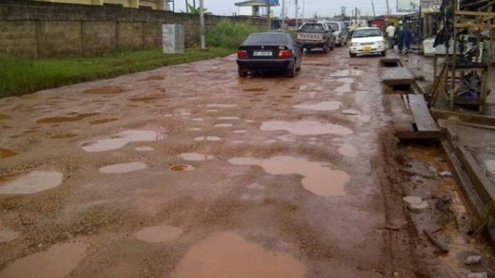In the pursuit of a vibrant economy: one that provides opportunities for entrepreneurs to test their ideas and transform them into thriving businesses and in effect, create jobs and prosperity for all – having a reliable road infrastructure is no luxury.
For Ghana as a nation, its latest score card on this critical aspect of her economic development may actually make good roads indeed seem like a luxury.
In a recent development, the country’s 2016 road infrastructure report published by the Ghana Institution of Engineers (GhIE) placed the nation’s performance in this aspect as poor.
Tagged “Ghana Infrastructure Report Card 2016â€, the report stated that the majority of the country’s roads lack the capacity to meet international standards.
Individually, road infrastructure scored 2.79 on a 5.0 scale and on an overall ratings on key infrastructures which included: road network, electric power and water infrastructure in the country, Ghana scored a D3.
Defending the ratings, Chairman of the Report Committee, Engineer. Dr. Charles Anum Adams said the nation’s roads at the moment are ill-prepared for changes in weather patterns and generally have shorter life-spans when weighed against international infrastructural benchmarks.
He noted that: “Most infrastructure exhibit significant deficiencies in conditions and functionality, with increasing vulnerability to riskâ€.
In recognition of the efforts made so far in infrastructural development as a basis for an even greater concern, he explained that although some new roads have been added to the national grid, a considerable number of them are showing obvious signs of deterioration indicating either a flaw in quality, or lack of needed maintenance.
Now, while there are perhaps a number of reasons for such performance and possibly top on priority being – finance, one may ask: can something be done about it?
Can a government or an administration with the goal, as stated by the President just yesterday (Thursday at Ghana’s NEIP launch), of building “the most business friendly economy in Africa†compromise its commitment to developing and maintaining a world class road infrastructure?
More so, should road maintenance at Weija- Accra, Kasoa at Cape coast, among others become a night activity that so often occurs prior to the visit of a President, government Minister or Water Works Director?
All these and more are real questions that demand honest answers: not in words but clearly stated and implemented measures to ensure that rural traders, Ghanaian companies and investors have the necessary road network and other critical infrastructural support to facilitate smooth business transactions.





